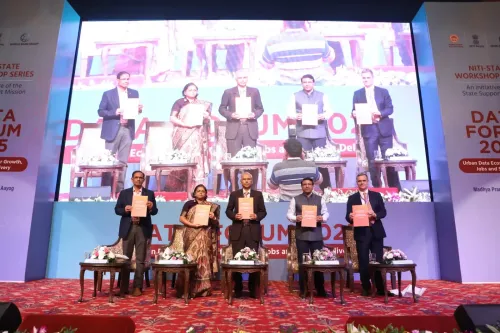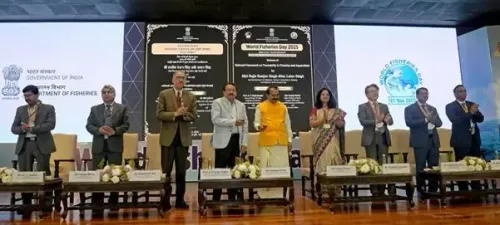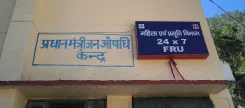Why has the Government Suspended the Enforcement of 55 IS Standards in Steel Quality Control?

Synopsis
Key Takeaways
- Suspension of 55 IS Standards to support MSMEs.
- 42 IS Standards suspended for three years.
- 13 IS Standards on specialty steel for one year.
- Focus on self-reliance in the steel industry.
- Response to market needs and raw material availability.
New Delhi, Nov 21 (NationPress) The Steel Ministry has decided to halt the enforcement of 55 IS Standards under the Steel Quality Control Order to ensure sufficient steel supply for MSMEs and consumer sectors.
The move follows a comprehensive review by the Ministry regarding the wider effects of enforcing the Steel and Steel Products (Quality Control) Order, 2024. This assessment was guided by recommendations from a high-level committee focused on non-financial regulatory reforms, according to an official statement released on Friday.
Factors considered included potential downstream pricing challenges, the necessity of ensuring adequate steel availability for MSMEs, and the ongoing dependence on imports for specialized grades.
Moreover, the Ministry evaluated issues related to preventing unfair trade practices, supporting smaller steel manufacturers, and promoting domestic self-sufficiency, as detailed in the statement.
In light of these considerations, the enforcement of QCO on 42 Indian Standards will be suspended for three years, while enforcement concerning 13 Indian Standards, specifically for specialty steel grades under PLI 1.2, will be paused for one year.
The Ministry of Steel has officially issued the Steel and Steel Products (Quality Control) Amendment Order, 2025, as outlined in the statement.
The suspension of 42 IS Standards in Schedule 1 of the Steel and Steel Products (Quality Control) Order, 2024 primarily affects steel grades used in creating engineered products, automotive components, and durable goods.
Additionally, the suspension of 13 IS Standards in the same schedule pertains to specialty steel grades essential for high-precision applications that demand remarkable strength, hardness, dimensional accuracy, and thermal stability, as per the statement.
This suspension of Quality Control Orders (QCOs) for 55 steel products aims to alleviate raw material shortages impacting industries like automobiles and MSMEs. This brings the total number of such orders under suspension, following recommendations from the high-level reform panel, to 76.
The non-financial regulatory reform panel, led by NITI Aayog member Rajiv Gauba, suggested the revocation, suspension, and deferment of QCOs for over 200 products, stressing that these measures have escalated compliance burdens, disrupted supply chains, and negatively impacted India's manufacturing competitiveness.









